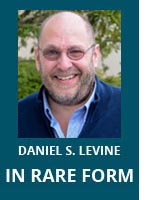
The scientific literature is replete with studies that suggest the benefits of caffeine. These stories often get the attention of reporters because newsrooms tend to be filled with high consumers of caffeine who are only too happy to read that the magic beans will extend life, improve sex, and make you think better.
I was, however, pleased to read between my morning mugs of Italian roast a case report in the June 11 issue of the Annals of Internal Medicine that described an unintentional bit of science that demonstrated the beneficial effects caffeine had on treating a boy with the rare neurological condition ADCY5-related dyskinesia.
The ADCY5 gene codes for the enzyme adenylate cyclase type 5, which plays a role in a molecular process involved in the supply of energy for cellular activities, including muscle contraction, as well as cellular signaling. Some ADCY5 variants cause ADCY5-related dyskinesia, a condition that causes involuntary movements, such as jerks, twitches, tremors, and other movement. This can affect the limbs, neck, and face.
ADCY5-related dyskinesia is without an approved treatment, but some patients drink coffee to control the condition. The authors of the case report noted that one adult patient drank coffee prior to going to bed to avoid nighttime episodes of dyskinesia that would otherwise wake him.
A team of researchers from the Department of Neurology of the Pitié-Salpêtrière Hospital AP-HP and the Brain and Spinal Cord Institute (CNRS / Inserm / Sorbonne University) reported on an 11-year-old boy with ADCY5-related dyskinesia. At the age of 3, the boy started having involuntary hyperkinetic movements. By age 11, he would have about 30 episodes day and night affecting his upper limbs and face. The episodes would last anywhere from a few seconds to 10 minutes.
The team, which had diagnosed the boy at age 11 with genetic testing, had suggested the boy’s parents try treating him with coffee. He was prescribed one cup of espresso in the morning, which produced a quick and dramatic response that lasted for seven hours. With another cup in the afternoon and a half a cup in the evening, the patient experienced a 90 percent reduction in episodes of dyskinesia.
By drinking two cups of coffee a day the boy was able to walk home from school, write without difficulty, ride a bike, and perform other normal daily activities that had not been possible as a result of the dyskinesia.
One day, the boy’s parents unintentionally served him decaffeinated coffee and his dyskinesia returned. When they realized what they had done, they corrected the situation. Neither the child nor the parents were aware of the error when they made it. The researchers called the error “a fortuitous, real-life, double-blind experiment.”
The researchers note that ADCY5-related dyskinesia is believed to result from gain-of-function mutations in ADCY5. The enzyme adenylate cyclase type 5 is inhibited by dopamine through D2 receptors and activated by adenosine through A2A receptors. That’s where caffeine comes in.
Adenosine receptors are the major target of caffeine. The researchers suggest using caffeine to antagonize A2A receptors would be a way of inhibiting adenylate cyclase type 5, which would seem to be a way to reduce the hyperkinetic movement disorder seen in patients with ADCY5-related dyskinesia.
“Caffeine is the most commonly consumed drug in the world, which means that a great deal already is known about its effects and safety, even in children,” the authors write. “In light of this strong rationale and our experience with our patients, we believe that caffeine may be an effective treatment for others with ADCY5-related dyskinesia and should be considered in all patients.”
There’s a tendency to think of rare disease therapies as requiring years of clinical testing and hundreds of millions of dollars of investment before they can benefit patients in need of treatments. It’s nice to know there may be benefits available for some patients in a simple cup of Joe.

Stay Connected
Sign up for updates straight to your inbox.
